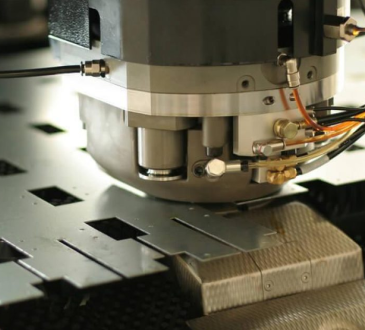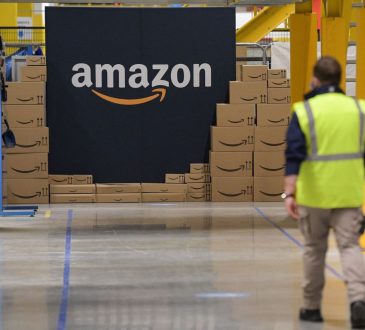
In 2023, we are having a big change in the heating, ventilation, and air conditioning (HVAC) world. This transformation drives the increased need for energy efficiency, sustainability, and technological improvements. We are on the verge of entering a new age, and heating, ventilation, and air conditioning (HVAC) systems are adopting electric capabilities to satisfy the ever-changing requirements of both residential and commercial environments. Raiven, the electrician purchasing platform, offers a wide range of modern equipment at pre-negotiated prices, supporting the adoption of residential and commercial electric HVAC systems.
This article will specifically delve into the HVAC revolution 2023, exploring the key trends, innovations, and electric technologies reshaping the industry.
The Green Imperative
The HVAC industry has long been associated with significant energy consumption and environmental impact. However, in recent years, the global call for sustainability and the pressing need to reduce carbon emissions have accelerated the development of green HVAC solutions.
Electric HVAC systems play a pivotal role in this transition. It is possible to drastically cut greenhouse gas emissions by switching from conventional heating systems fueled by gas and oil to modern electric alternatives. The capacity of electric heat pumps, in particular, to offer both heating and cooling while simultaneously reducing the amount of energy consumed and the impact on the environment has contributed to their growing popularity.
The Rise of Electric Heat Pumps
In 2023, electric heat pumps are at the forefront of a big change in HVAC. These devices can be used in various ways to control the temperature all year. Heat pumps work by moving heat from inside to outside. This makes them very energy-efficient and good for the environment.
Variable-speed blowers and more powerful control systems are two big changes in electric heat pumps. Heat pumps can work more efficiently with these technologies because they can change how much heat or cool they send to a place. This not only makes you feel better, but it also saves energy and lowers your electricity bills.
Electric heat pumps can also be combined with green energy sources like solar panels to make them even more eco-friendly. The idea that electric HVAC systems and green energy can work together aligns with the worldwide movement to live sustainably and use less fossil fuels.
Smart HVAC Systems
In this day and age of smart technology, HVAC systems are also becoming smart. Smart HVAC systems, empowered by electric capabilities, redefine how we control indoor climate. These systems leverage sensors, artificial intelligence, and remote connectivity to optimize comfort, energy efficiency, and convenience.
One great thing about smart HVAC systems is that they can learn from users and change based on what they like. By analyzing data on temperature, occupancy, and weather conditions, these systems can make real-time adjustments to heating and cooling, ensuring optimal comfort while minimizing energy consumption.
Furthermore, smart HVAC systems enable remote control and monitoring via smartphone apps or web interfaces. This means users can adjust their HVAC settings even when away from home, leading to greater energy savings and convenience.
Electrification Of Commercial HVAC
Commercial buildings are also embracing electric capabilities to meet the demands of sustainability and energy efficiency. Large-scale electric HVAC systems are becoming increasingly popular in commercial applications, offering several benefits:
- Energy Efficiency: Electric commercial HVAC systems, especially those with advanced controls, can deliver substantial energy savings. This is crucial for businesses looking to reduce operating costs and comply with environmental regulations.
- Reduced Maintenance: Electric HVAC systems generally require less maintenance than their traditional counterparts. This means less downtime and lower repair costs, which makes the system more reliable overall.
- Scalability: Electric HVAC systems can be easily scaled to meet the specific needs of large commercial spaces. This scalability ensures that businesses maintain consistent indoor comfort while optimizing energy use.
- Sustainability Credentials: Commercial enterprises are under growing pressure to demonstrate their commitment to sustainability. Electrified HVAC systems help businesses reduce their carbon footprint and align with environmental goals.
The Role Of Energy Storage
Energy storage is an essential component of the 2023 HVAC revolution. Electric HVAC systems, especially those integrated with renewable energy sources, can benefit greatly from energy storage solutions such as lithium-ion batteries.
Energy storage enables HVAC systems to store excess energy when it’s abundant and discharge it when needed. This not only enhances the reliability of HVAC operations but also allows users to tap into stored energy during peak demand hours, reducing electricity costs.
Moreover, energy storage systems contribute to grid stability by providing a buffer against sudden fluctuations in electricity supply and demand. They are crucial in creating a more resilient and sustainable energy infrastructure.
Electrification Challenges
While the shift towards electric HVAC systems is promising, it does come with some challenges that need to be addressed:
- Upfront Costs: Electric HVAC systems, particularly those with advanced features, can have a higher initial cost than traditional systems. Long-term savings on energy costs and lower upkeep costs often make up for these costs, though.
- Grid Capacity: Widespread adoption of electric HVAC systems, especially in densely populated areas, may strain the electricity grid. Upgrading and expanding the grid infrastructure will be necessary to accommodate the increased demand.
- Recycling And Disposal: As electric HVAC systems become more prevalent, there will be a need for proper recycling and disposal procedures for outdated equipment and components to minimize environmental impact.
- Education And Training: The HVAC industry must invest in education and training to ensure that technicians and professionals are equipped to install, maintain, and repair electric HVAC systems effectively.
Conclusion
The HVAC industry is experiencing a revolution in 2023, driven by the demand for energy efficiency, sustainability, and technological innovation. Electric HVAC systems, particularly electric heat pumps and smart HVAC solutions are at the forefront of this transformation.
Not only do these systems cut down on energy use and greenhouse gas pollution, but they also make things more comfortable, convenient, and reliable. As the world continues to deal with climate change and the need to save energy, electric HVAC systems will be very important in making the future cleaner and more efficient.
There are some problems with turning HVAC systems into electric ones, but the HVAC industry is ready to face these problems head-on thanks to help from the government, better technology, and a growing concern for the environment. They will be able to provide more efficient and environmentally friendly solutions for heating, ventilation, and air conditioning needs in 2023 and beyond.




